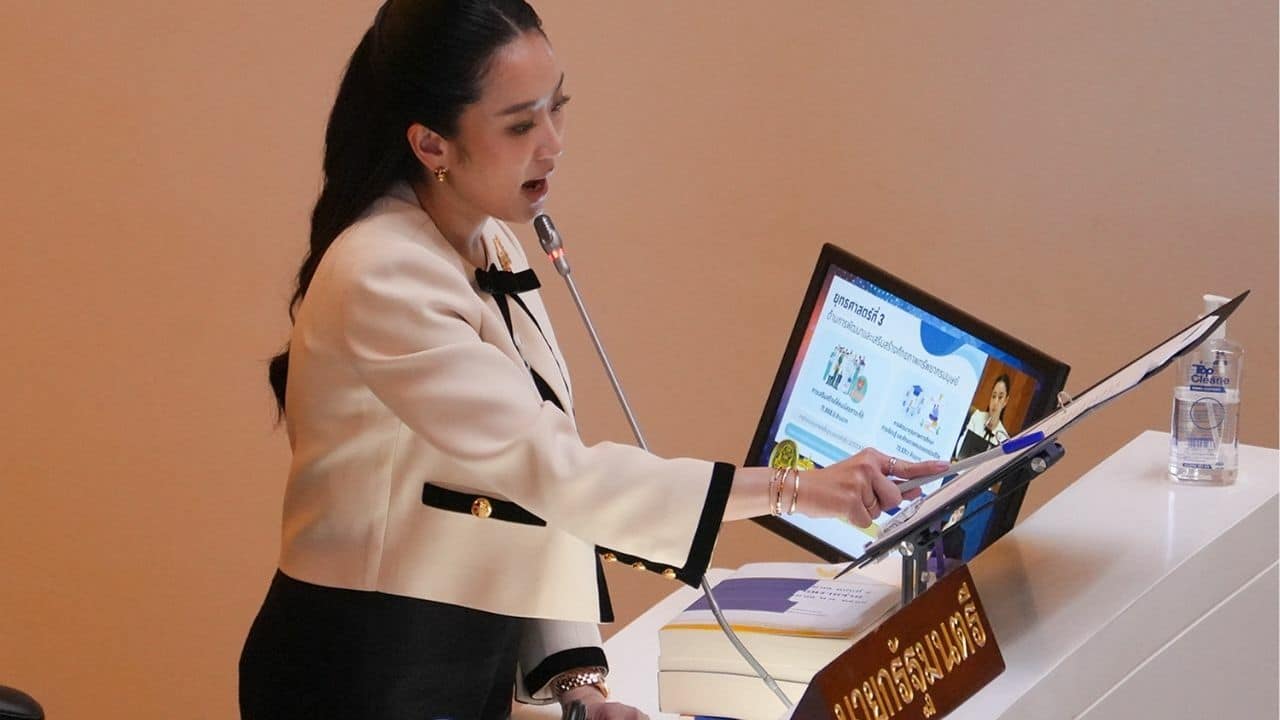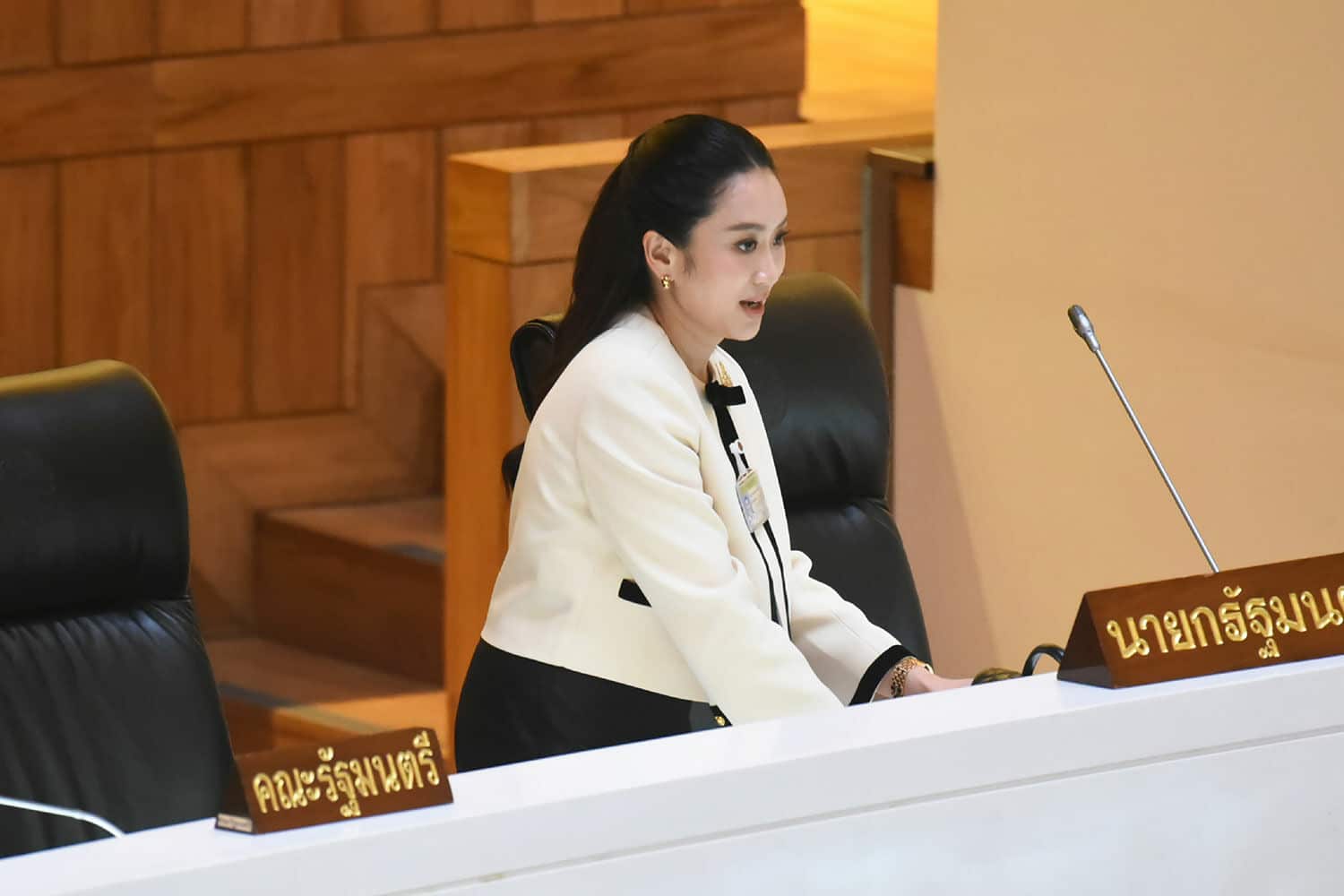Thai PM proposes 3.78 trillion baht budget amid opposition criticism
Paetongtarn based budget on growth, investment, tourism, and inflation forecasts

Prime Minister Paetongtarn Shinawatra submitted a 3.78 trillion baht budget proposal for the fiscal year 2026 to the House of Representatives, initiating a four-day debate with the vote set for Saturday, May 31.
The People’s Party criticised the proposal for not addressing current economic challenges, indicating their intention to reject it.
Paetongtarn explained that the spending plan was crafted based on economic forecasts predicting growth between 2.3% and 3.3% next year, driven by increased domestic spending, private investment, and a recovering tourism sector. Inflation is expected to range from 0.5% to 1.5%, with a projected current account surplus of 2.3% of GDP.

The draft budget anticipates a 0.7% rise in spending and a 0.7% reduction in the budget deficit to 860 billion baht, or 4.3% of GDP, compared to the 2025 fiscal year ending in September. However, Paetongtarn identified key risks to economic growth, including international trade barriers, geopolitical tensions, and severe weather changes.
Before attending the House meeting, Paetongtarn dismissed the opposition’s criticisms, asserting that the spending plan is designed to stimulate the economy. She emphasised that the budget had undergone review by various agencies, incorporating their feedback.
The Pheu Thai leader said the government has considered concerns about spending, including the digital wallet scheme, referring to the postponed third phase of the cash-handout programme that has yet to significantly impact the economy.
“I believe the budget will foster economic growth and achieve the target.”
She downplayed her father, former premier Thaksin Shinawatra’s suggestion to reallocate part of the 157 billion baht economic stimulus fund to address narcotics issues, noting that the government had already designated a budget for this.

Opposition leader Natthaphong Ruengpanyawut of the People’s Party criticised the government for lacking a strategic approach to spending.
“The issue isn’t the borrowing itself but the government’s excessive spending without a supporting investment or revenue plan.”
Sirikanya Tansakun, deputy leader and chief economic critic of the People’s Party, argued that the budget bill does not address the country’s economic needs. She stated that the scrutiny by the party’s 49 MPs would reveal unnecessary spending, corruption-prone proposals, and non-urgent projects, reported Bangkok Post.
She assured that the four-day budget review would be meticulous and rigorous. Instead of focusing on numbers or abstract concepts, MPs would provide examples of spending plans to avoid.
“The party will not support the budget bill and will seek a unified stance among opposition parties, arguing the bill fails to reflect current conditions and lacks preparation for future risks.”
While the budget is expected to pass, it arises amid tensions within the Pheu Thai-led coalition, particularly with its major partner, the Bhumjaithai Party.
Disputes have arisen over the government’s casino bill aimed at legalising casinos in integrated complexes to enhance tourism. Conflicts over constitutional reform and the regulation of cannabis, which was decriminalised in 2022 but now faces tighter controls, have also strained the coalition.
Latest Thailand News
Follow The Thaiger on Google News:


























